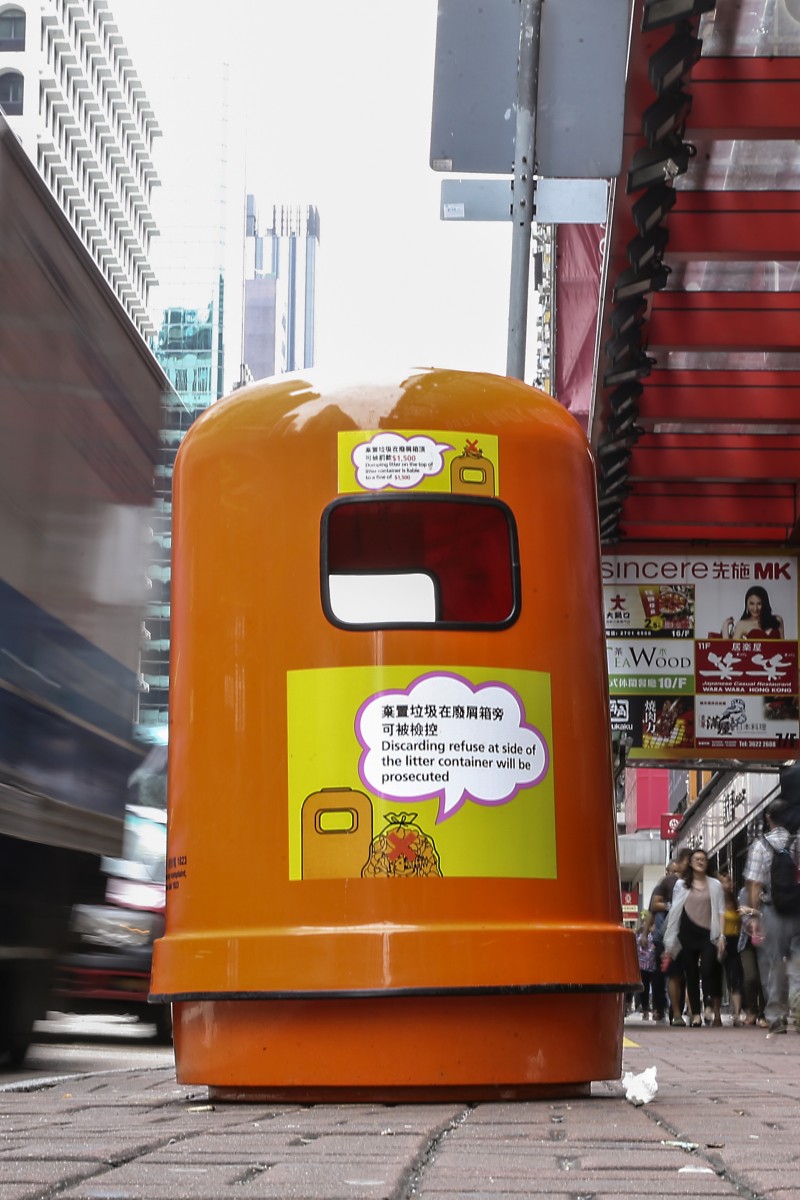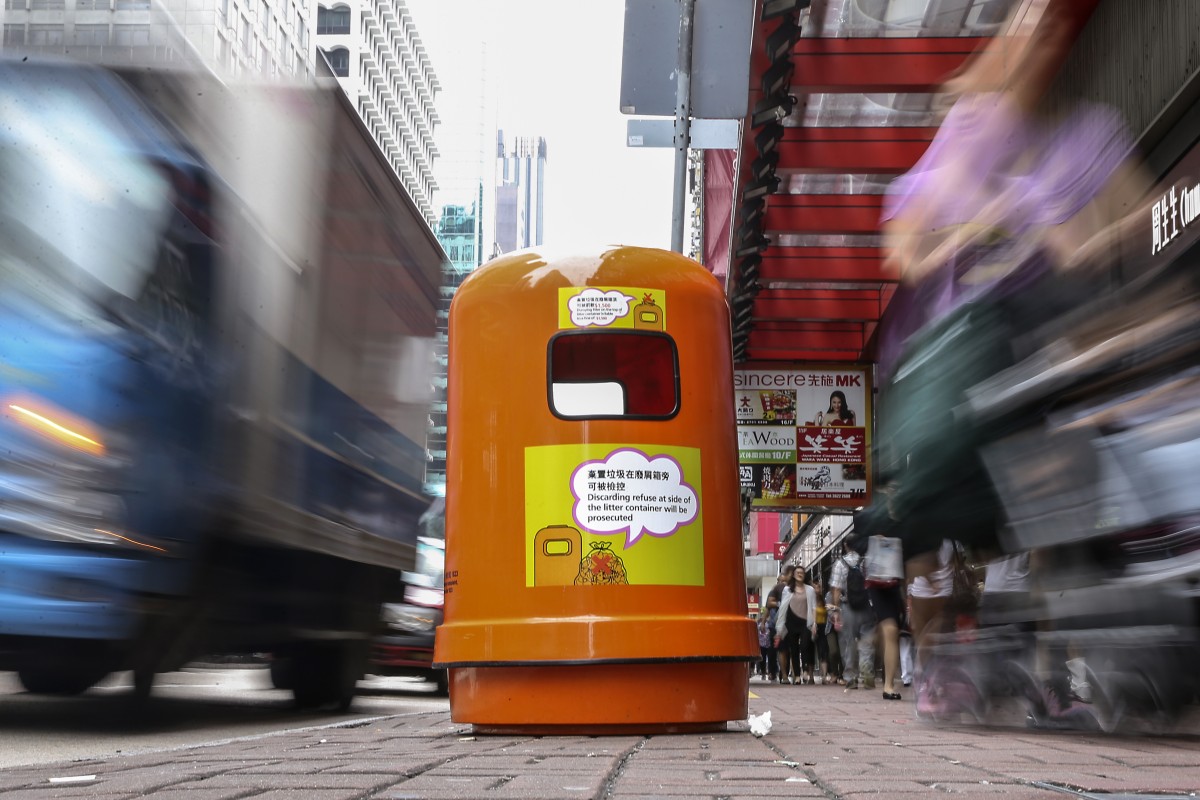
Face Off: should we have fewer rubbish bins on the streets in Hong Kong?
Each week, two of our readers will debate a hot topic in a parliamentary-style debate that doesn’t necessarily reflect their personal viewpoint. This week’s topic is ...

 Orange rubbish bins are a ubiquitous sight on the streets of Hong Kong. Are they too common?
Orange rubbish bins are a ubiquitous sight on the streets of Hong Kong. Are they too common?Joy Pamnani, 18, The University of Hong Kong
The Hong Kong government has introduced a host of measures over the past few years in a bid to reduce waste. This includes a plastic bag levy for supermarkets in 2009, which was extended to cover all retailers last year. But as our landfills run out of space, there is a need for further action to reduce waste, which is why I believe it’s time the government reduced the number of bins on our streets in conjunction with the upcoming municipal waste charging system.
Environmental reasons for the policy are a no-brainer. If people have fewer places to dispose of their trash, they will have to think twice, and actively reduce the amount they are throwing away.
The introduction of the 2009 plastic bag levy saw a dramatic fall in the use of plastic bags. The 2015 extension spoke volumes about the fact that Hongkongers love to save money. If and when the municipal waste charging system is implemented, many households may try to reduce their charges by throwing their waste into public bins. This would defeat the whole purpose of a system meant to reduce waste.
But this loophole could be closed by gradually reducing the number of bins on the street. When there are fewer public places to dispose of rubbish, people will take it home. This would also lead to an increasing public awareness of the importance of waste reduction.
Some may argue that fewer bins translates into more people leaving rubbish next to the bins that still exist. An SCMP report showed that street cleaners found their workload had increased after 800 smaller bins were introduced to the city’s streets. But I beg to differ. Leaving rubbish next to bins is littering, which is illegal. By reminding people of the potential punishments for such actions, they will become more aware of the importance of waste reduction and recycling as the right solution, leading to a great reduction in the amount of waste created in Hong Kong.
The waste disposal charging system in Japan, along with its isolated trash cans policy, is an example we should follow, given the country has one of the highest recycling rates in the world. Hong Kong could join top environmental rankings by reducing the number of bins, and starting the waste charging policy.
Anson Chan Pui-shing, 17, Carmel Secondary School
It is obvious that the call for fewer bins on the streets is meant to reduce waste in Hong Kong. However, such a policy is impractical and ineffective.
To start with, the suggestion is impractical. People in Hong Kong like to shop, and much of what they buy has too much packaging. This naturally means a lot of waste is produced every day. Unlike citizens in Japan and Taiwan, most Hongkongers lack civic and environmental awareness, and tend to throw away even recyclable litter. Reducing the number of bins is not going to stop people producing waste. They will just find other places to dump it – probably just by the side of the road.
Further, this would lead to hygiene issues. Not enough people in Hong Kong understand the importance of environmental protection, and the government doesn’t do enough to educate them. Therefore they would not consider the consequences of littering on the streets, such as attracting pests (such as rats and cockroaches) and spreading germs.
It’s also unrealistic to expect people to put their rubbish in their bags and take it home.
A policy of reducing rubbish bins is also ineffective. Hongkongers dump so much waste, instead of recycling, because they don’t know enough about recycling. Until the public has been better educated on the importance of recycling, as they have been in Japan and Taiwan, reducing the number of bins on Hong Kong’s streets will only lead to disaster.
